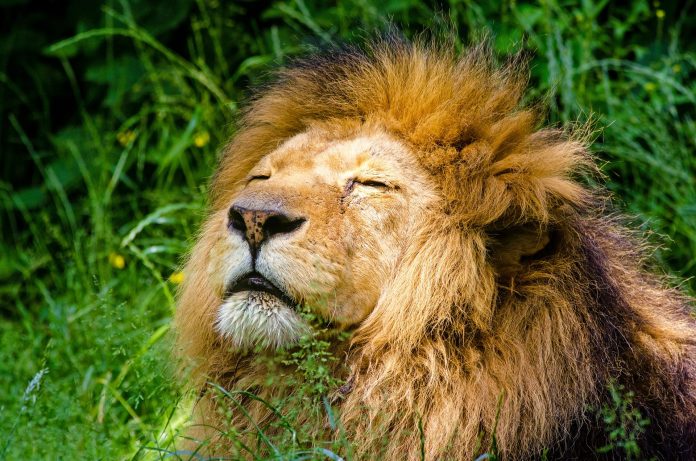More than 200 German police officers armed with guns and night-vision goggles scoured the streets of Berlin overnight Thursday as the hunt for an escaped lioness continued into the night. .
Residents living in the southern districts of the city have been advised to stay in their homes all day and to keep all doors windows closed.
At around 8pm, police said they were entering a ‘hot phase’ in the search, with a reported sighting of the lioness.
But an hour later, they admitted they had been unable to catch the feline, as residents began leaving their homes and some even drinking in the streets chatting about the bizarre fugitive.
Three women from nearby Potsdam were spotted in Kleinmachow carrying bottles of beer and two of them ventured a few steps into the forest, German newspaper Bild reports, amid fears the lioness is already becoming an attraction.
“The appearance of a supposed lioness roaming the streets of Berlin raises concerns for both the public’s safety and the welfare of the animal. It is very likely that the animal, who must be under great stress currently, is privately owned since there have been no reports from zoos or circuses about a missing animal, “ FOUR PAWS global animal protection group said.
This incident highlights the need for Germany to implement nationwide regulations governing the private keeping and trade of exotic animal species. Wild animals simply are not suited for private ownership, which is why political action is urgently needed. As the German Animal Welfare Act undergoes revision, there is a unique opportunity to establish a positive list that would regulate the trade and private keeping of exotic pets across the nation. Germany’s position as one of the world’s largest markets for wild animals as pets demands effective measures to counteract the ease with which potential buyers can acquire animals through online platforms and exchanges, often bypassing necessary controls and purchasing animals at low prices.
The problem is not confined to Germany alone; inconsistent legislation among EU countries fosters the easy purchase and cross-border movement of big cats, perpetuating their presence as status symbol pets and social media attractions. Many traders do not care where the animals end up, but their care requires species-specific knowledge and keeping conditions. The fact that the governments in Germany and other EU countries tolerate the trade and keeping of dangerous wild animals, potentially posing a danger to the public, is not only a severe animal welfare issue but also an act of gross negligence.
Our research reveals that Member States lack an accurate overview of the captive-bred big cat population in Europe. This ongoing commercial breeding and trade of lions, tigers, and other big cats contributes to illegal activities. Consequently, increased efforts to end the unnecessary trade of endangered species to safeguard wild big cats and support enforcement authorities must be implemented. The recently published EU Tiger Guidance offers a critical opportunity to enhance controls on the commercial trade of captive tigers. If implemented by Germany and other Member States, it will essentially end the trade of tigers and their parts for commercial purposes, including tigers kept as pets or used for entertainment.
We hope that the supposed lioness in Berlin can be captured without any harm caused to the public or the animal and urge EU decisionmakers to end the commercial trade of big cats in the EU, to spare thousands of animals the sad fate of cruel keeping conditions and exploitation for entertainment, or worse,” says Vanessa Amoroso, Head of the Wild Animals in Trade unit at FOUR PAWS.

















